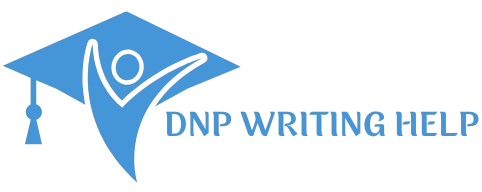At DNPwritinghelp.com, we understand the challenges DNP students face when writing reflective journals. Many find it difficult to articulate their thoughts in a structured way, align their reflections with academic requirements, and integrate evidence-based insights into personal experiences. That’s where professional DNP reflective journal writing help comes in—to guide, support, and empower students in producing thoughtful and academically sound journals.
Table of Contents
Doctor of Nursing Practice (DNP) programs are rigorous, demanding, and deeply transformative. Students are required to balance coursework, clinical practice, leadership responsibilities, and research projects. One integral component of the DNP journey is reflective journaling. Reflective journals are not just academic exercises; they are structured opportunities for students to pause, process their experiences, and make sense of how theory translates into practice.
Get your paper written by a professional writer
Unlimited revisions
AI & Plagiarism free
Join 200,000+ happy customers
Hire WriterWhat is a DNP Reflective Journal?
A DNP reflective journal is a structured record where students document their experiences, insights, and professional growth during their program. It typically includes reflections on clinical practice, leadership development, scholarly projects, ethical dilemmas, and evidence-based practice.
Reflective journals serve multiple purposes:
- Self-awareness: Encouraging students to think critically about their actions and decisions.
- Professional growth: Identifying strengths and areas for improvement in practice.
- Knowledge integration: Connecting classroom theory with real-world application.
- Evidence of learning: Demonstrating progress to faculty and preceptors.
Unlike standard academic essays, reflective journals are personal yet professional. They require honesty, critical thinking, and an ability to evaluate one’s learning journey through the lens of nursing theories, ethical principles, and healthcare goals.
Why Reflective Journaling Matters in DNP Programs
Reflective journaling is not busy work—it is an essential part of doctoral-level nursing education. Here are a few reasons why it matters:
- Bridging Theory and Practice
Journaling allows students to apply theoretical knowledge from coursework into their clinical settings. It highlights how abstract concepts influence patient outcomes, leadership decisions, and organizational change. - Supporting Evidence-Based Practice
DNP programs emphasize evidence-based practice (EBP). Reflective journals offer space to evaluate how evidence guides clinical decisions, identify barriers, and explore strategies for sustainable change. - Promoting Lifelong Learning
Nurses at the doctoral level are expected to be lifelong learners. Reflective journaling nurtures this mindset by encouraging continuous evaluation, adaptation, and improvement. - Facilitating Emotional Processing
Nursing practice is emotionally intense. Journals provide a private yet structured way to process difficult experiences, such as ethical dilemmas, patient loss, or leadership conflicts. - Assessment and Accreditation
Faculty use reflective journals to evaluate whether students are meeting program outcomes. Accreditation bodies also consider reflective practice as a marker of high-quality nursing education.
Grand Canyon University DNP 835 Reflective Journal – Step-by-Step Guide
This guide is designed to help students successfully complete the Grand Canyon University (GCU) DNP 835 Reflective Journal assignment by applying general principles of academic writing. It breaks down the process into clear, manageable steps, making it easier to approach reflective writing with confidence. By the end of the guide, you will also find sample essays that demonstrate how the discussed sections can be effectively applied.
How to Research and Prepare for the DNP 835 Reflective Journal
Success in any academic assignment—whether it is the GCU DNP 835 Reflective Journal or another project such as the NUR 550 Benchmark – Evidence-Based Practice Project: Literature Review—depends largely on preparation. Careful planning saves time, improves organization, and ensures you meet all expectations.
- Review the Instructions Thoroughly
Begin by carefully skimming the assignment requirements. Once you have an overview, go back and analyze the instructions one by one to ensure you fully understand what your instructor expects. Pay special attention to formatting requirements—APA is most common in nursing, but confirm if another style is required (e.g., MLA, Chicago). - Gather Relevant Resources
The research phase is critical. Start with the weekly resources provided in your course materials. These are often tailored to align with the assignment and should be prioritized. Next, expand your research using the university library database to locate peer-reviewed articles, clinical guidelines, and scholarly references that strengthen your arguments. - Organize Your Materials
Once you’ve gathered enough resources, organize them by themes or sections that match your assignment structure. This preparation makes drafting easier and ensures your reflective journal is both evidence-based and well-structured.
Sample Answer for DNP 835 Reflective Journal
A reflective journal is a formal academic document that captures a student’s critical analysis of learning experiences, newly acquired knowledge, and professional growth throughout a specific course. It provides an opportunity to document not only achievements but also the challenges faced during the learning process, along with the strategies applied to overcome them. For the Grand Canyon University (GCU) DNP 835 course, which emphasizes patient outcomes and sustainable change, this reflective journal demonstrates how course objectives and the AACN Essentials for Doctoral Education were met.
The purpose of this reflection is to outline the knowledge, skills, and competencies gained during the course, highlight difficulties encountered, and describe how those challenges were addressed. Overall, the experience fostered the development of strategies essential for improving patient care, promoting quality and safety, and ensuring a supportive clinical environment.
Reflection
This reflection focuses on the strategies, activities, and efforts employed to achieve the objectives of DNP 835: Patient Outcomes and Sustainable Change. Weekly assignments, class participation, and discussions formed the foundation of this learning journey. These activities allowed for the integration of nursing competencies into practice areas such as healthcare delivery, ethical decision-making, sustainable change, and patient-centered care.
Through active engagement, the DNP student was able to strengthen clinical leadership skills, explore approaches to quality improvement, and align course objectives with professional practice. The following sections describe the AACN Essentials that were met during the course.
Essential II: Organizational and Systems Leadership for Quality Improvement and Systems Thinking
Essential II emphasizes leadership in organizational and systems contexts to promote quality improvement and systems thinking. This essential aligned closely with the focus of the course.
During DNP 835, students examined the critical role of DNP-prepared nurses in promoting sustainable healthcare practices and implementing effective care delivery models. Key areas explored included:
- The application of nursing theory to practice
- The complexities of cost management and care coordination
- Strategies for evaluating and addressing safety and quality issues in patient care
Additionally, the course introduced innovative approaches to sustainable change and explored relevant change theories that can be applied to transform clinical practice environments. By studying methods to cultivate a culture of safety and quality, this essential was successfully fulfilled.
Essential III: Clinical Scholarship and Analytical Methods for Evidence-Based Practice
Essential III focuses on clinical scholarship and the application of analytical methods to support evidence-based practice (EBP). This essential was also achieved through multiple course activities.
As part of the learning process, the DNP student developed an evidence-based quality improvement proposal and evaluated potential challenges that could hinder its implementation. This exercise advanced skills in critical thinking, problem-solving, and research application. The project highlighted the importance of EBP in driving patient outcome improvements and underscored the value of scholarly inquiry in nursing practice.
Topics such as population health planning, program evaluation, and project sustainability were also explored, enhancing the student’s understanding of long-term healthcare improvement strategies. Furthermore, the course addressed theories of change—such as Lewin’s Change Theory and Everett Rogers’ Diffusion of Innovations—demonstrating how innovations spread across organizations and systems to create lasting impact.
Through these activities, the student not only strengthened their clinical scholarship but also advanced their ability to design, implement, and evaluate evidence-based projects aimed at improving care delivery and patient safety.
How to Write the Introduction for the DNP 835 Reflective Journal
The introduction is your opportunity to outline the focus of your reflective journal and set the tone for the rest of the paper. It should be concise, engaging, and aligned with academic writing standards.
- Start with context: Open with two to three sentences that briefly introduce the topic. You may include relevant statistics, a clinical scenario, or a general statement about the importance of reflective practice in nursing.
- Highlight key points: Summarize the main areas your reflection will cover—such as clinical experiences, integration of evidence-based practice, leadership insights, or patient outcomes.
- State the purpose: Conclude the introduction with a clear purpose statement. A standard phrasing is: “The purpose of this paper is to…” followed by a brief outline of the specific topics or sections you will address in the reflective journal.
A well-crafted introduction not only helps the instructor understand what to expect but also gives your writing direction and clarity.
Common Challenges in DNP Reflective Journal Writing
Despite its importance, many DNP students struggle with reflective journaling. Some of the common challenges include:
- Being too descriptive: Students often summarize events without analyzing or reflecting on them.
- Lack of structure: Journals may become unfocused, making it difficult to connect experiences to learning outcomes.
- Time constraints: Busy schedules leave little time for thoughtful writing.
- Difficulty linking theory to practice: Students may struggle to integrate scholarly evidence or nursing theories into their reflections.
- Fear of vulnerability: Writing honestly about mistakes or uncertainties can feel uncomfortable.
These barriers can prevent students from creating impactful reflective journals that meet academic expectations.
How Professional Reflective Journal Writing Help Can Support DNP Students
At DNPwritinghelp.com, we specialize in guiding DNP students through DNP reflective journal writing. Our experts—many of whom are experienced nursing professionals and academic writers—offer tailored assistance that addresses these challenges.
Here’s how professional help makes a difference:
1. Structured Writing Frameworks
We provide clear frameworks for reflective writing, such as the Gibbs Reflective Cycle or Johns’ Model of Reflection. These models ensure your journal includes description, analysis, evaluation, and action planning.
2. Integration of Evidence and Theory
Our writers help connect your personal experiences with nursing theories, scholarly articles, and evidence-based guidelines. This elevates your reflection from personal storytelling to doctoral-level analysis.
3. Polished, APA-Compliant Writing
Reflective journals still need to follow academic conventions. We ensure proper APA formatting, clarity, and professional tone while maintaining your authentic voice.
4. Time-Saving Support
If you’re overwhelmed by assignments, clinical hours, and projects, outsourcing journal writing support saves valuable time and reduces stress.
5. Confidentiality and Originality
We respect your privacy. All reflective journals are custom-written, plagiarism-free, and designed to authentically represent your learning journey.
FAQs on DNP Reflective Journal Writing Help
What is DNP Reflective Journal Writing Help?
DNP Reflective Journal Writing Help is a professional support service offered by DNPwritinghelp.com that assists nursing students in writing reflective journals required throughout their Doctor of Nursing Practice (DNP) program. These journals help students critically analyze their learning experiences, practice immersion, and professional growth. Our experts guide students in aligning reflections with course outcomes, DNP competencies, and practice-based insights.
Why do I need help with my DNP reflective journal?
Reflective journal writing is more than just sharing experiences—it requires critical thinking, structured analysis, and academic writing skills. Many students struggle with linking their experiences to theory, practice standards, and program objectives. At DNPwritinghelp.com, we provide structured guidance to ensure your reflective journal demonstrates deep insight, scholarly writing, and professional relevance.
What makes your DNP Reflective Journal Writing Help different from other services?
Unlike generic writing services, DNPwritinghelp.com specializes in nursing and DNP coursework. Our team consists of nursing scholars and academic writers who understand AACN Essentials, DNP competencies, and reflective frameworks. We focus on helping you produce authentic, high-quality journals that meet academic and professional standards while maintaining your personal voice.
Can I use your reflective journal writing help for my practice immersion hours documentation?
Yes. Many DNP programs require students to reflect on their practice immersion experiences as part of their clinical documentation. Our reflective journal writing help ensures your entries are well-organized, evidence-based, and aligned with your project or immersion outcomes. We help highlight the connection between theory, practice, and leadership in healthcare improvement.
How do I get started with DNP Reflective Journal Writing Help on your website?
Getting started is simple. Visit DNPwritinghelp.com and reach out through our contact form or live chat. Share your course requirements, journal prompts, or practice immersion guidelines, and our team will match you with an experienced DNP writing expert. From brainstorming to editing, we ensure your reflective journal is polished, insightful, and academically strong.
Also Read:
- DNP-835A Patient Outcomes and Sustainable Change
- DNP-835 Quality and Sustainability Paper: Part 1
- DNP-835 Quality and Sustainability Paper: Part 2
- DNP 835 Sustainability Worksheet
- DNP 835 DPI Project: Outline of 10 Strategic Points Revision Review
- DNP 835 Sustainability Plan Presentation
- DNP-835 Summary of Current Course Content Knowledge
- DNP 835 Topic 8 Reflective Journal
- DNP 835 DNP Reflective Journal




